Troll! Data! Analysis!
…because when life gives you comments, you should make commentade.
…because when life gives you comments, you should make commentade.
These are the slides for my Ignite presentation, which I gave yesterday. There is video, but I’m self-conscious about how I talked too fast, so I don’t think I’ll post it. I mostly did this at Ignite to force myself into a deadline so I’d get it done at all. This was smart, because re-reading and classifying almost 1,000 comments ended up being exponentially harder than just reading them the first time.
ETA: Because people are asking, and because credit where credit is most definitely due – these slides and all of the visualizations were put together by the fantastic Darius Kazemi. He’s an excellent coworker, and I’m not just saying that because he’s my partner. <3
Trigger warning for rape and trolling

Hi, my name’s Courtney Stanton, I’m an interactive media and video games producer from the Boston area. I’m here today to talk to you about my blog comments from the week of Jan 25 – Feb 1st and the differences between regular online discussion and trolling comments.

Since it’s relevant to this presentation; I am a rape survivor and I have a personal blog. I wrote a series of posts, but the specifics aren’t really important here. In general, I presented the idea that rape culture and video game culture intersect with one another.

And that turned into a giant fight. I decided to take the comments and analyze them to look at how why and how this discussion was happening. I suspect some of the trends that I am seeing could be relevant to other websites and online discussions.

I decided to classify the first week of comments, over 900 of them, in a binary fashion, based on three different variables. These classifications were all subjectively applied by me. One is whether or not they agree with my post or disagree with it. Pretty basic.

The second was whether people were passively forwarding an idea or making an observation as opposed to aggressively trying to generate a response. Essentially, did what they say seem to demand a reply or not? The vast majority of trolls can be classified as aggressive.

The third variable was whether or not they looked to be sharing information or whether they were just insulting the person they were replying to with personal attacks. So for example, a fully-classified “troll” comment would be disagreeing with me aggressively and insultingly.
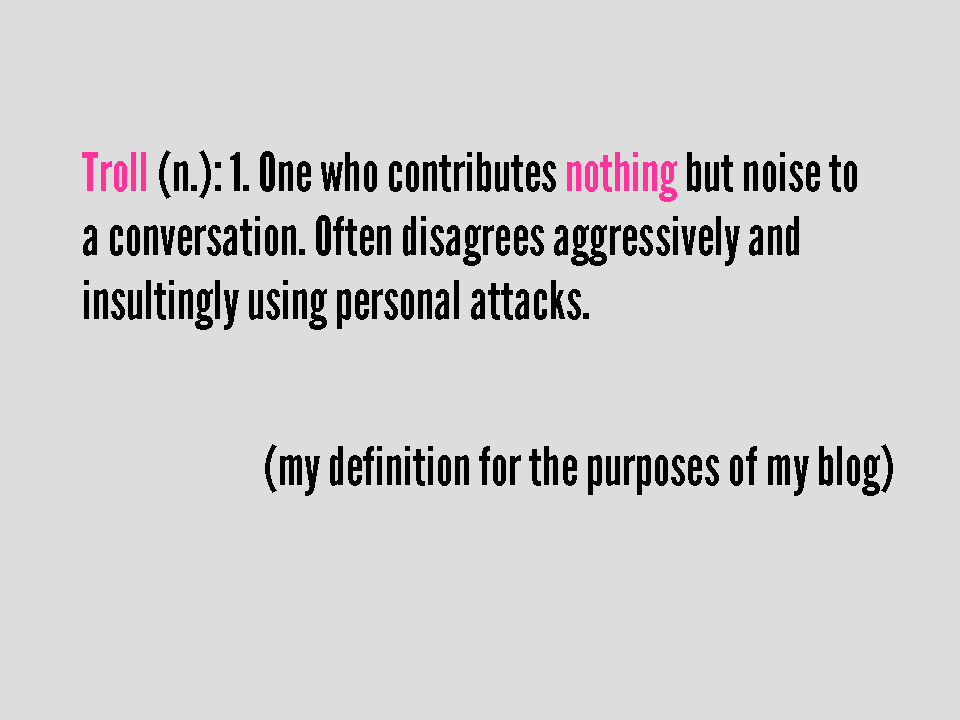
For the purposes of my blog, I define trolls as people who aren’t adding anything to the conversation at hand. That can be giant blocks of text, like repeating “John Madden” over and over, or vicious personal attacks. Trolling is not people who are just disagreeing with me.
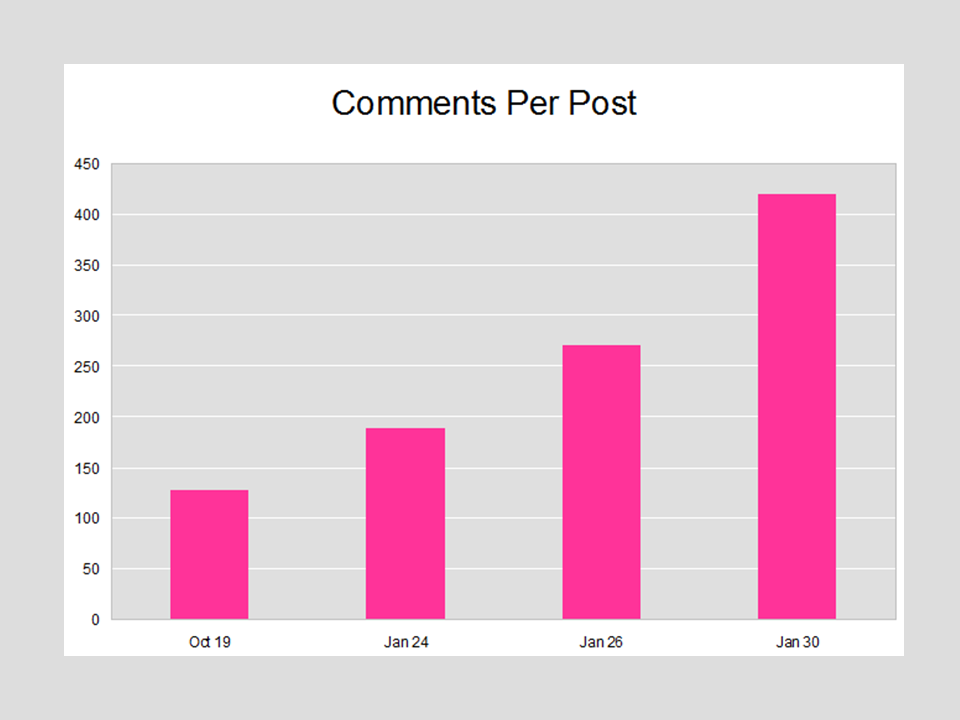
If you look at the traffic that each post has gotten it’s been increasing over time. After posting on January 30th, I had well over 400 comments just two days later on February 1st. More posts on the subject didn’t decrease comments – it increased them.
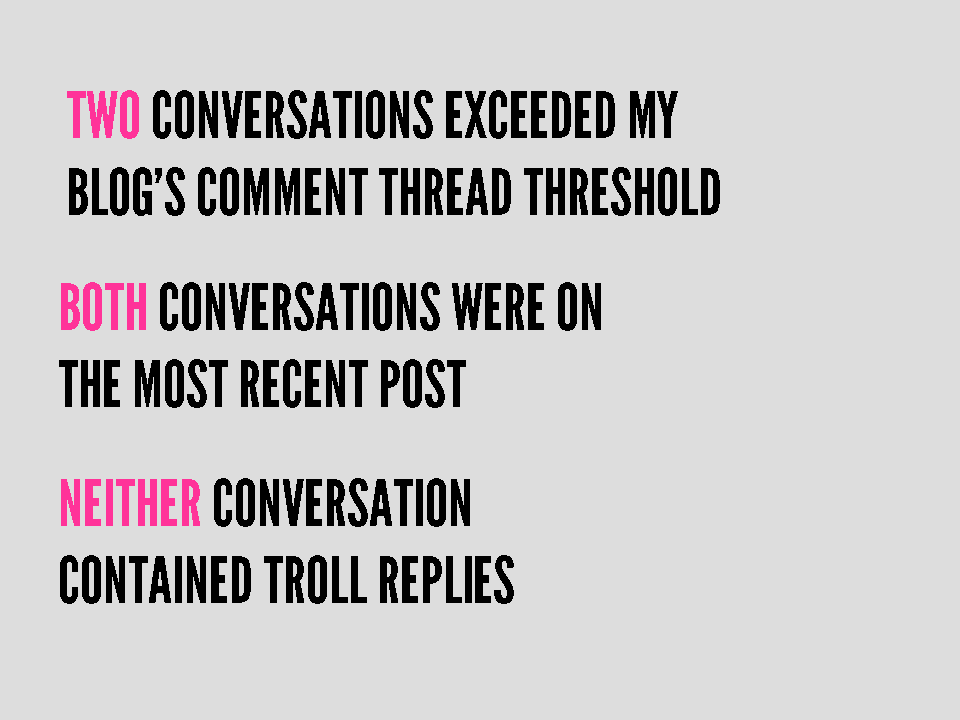
Two of the conversations that I didn’t ever participate in exceeded WordPress.com’s ability to thread a comment, which is ten levels of commenting. Both of those were on the most recent post, and neither of those were trolling each other, so that was real conversation between commenters.
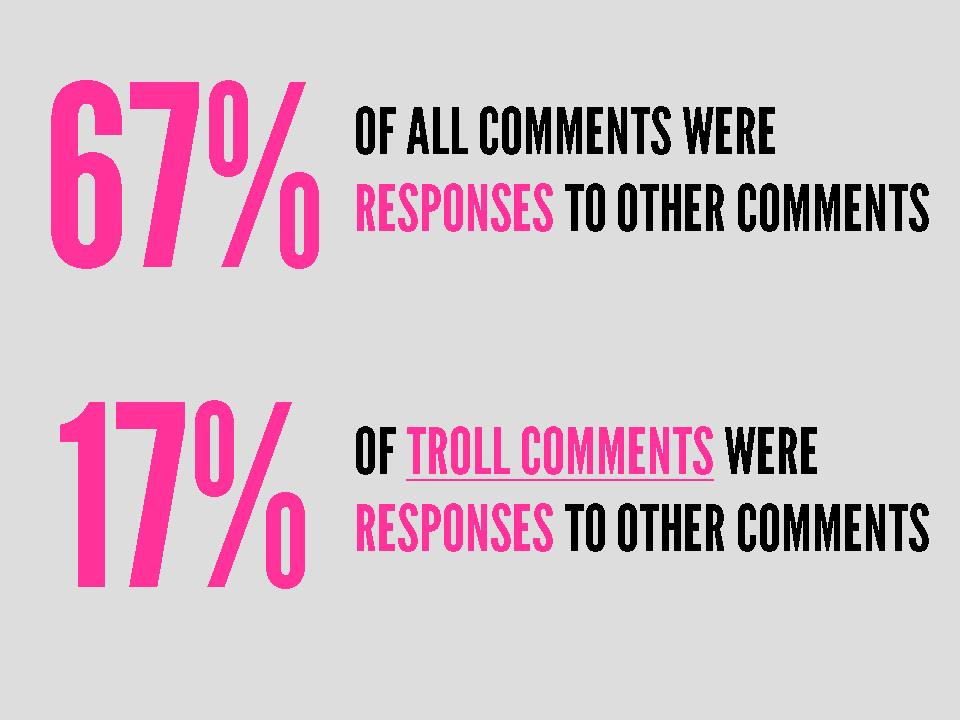
67% of all responses are actually responses to other commenters. People are way more likely to talk to each other than to me. However, most of the troll comments are made directly to me. Clearly, insulting, aggressive disagreement with the original poster isn’t necessary to drive the conversation.
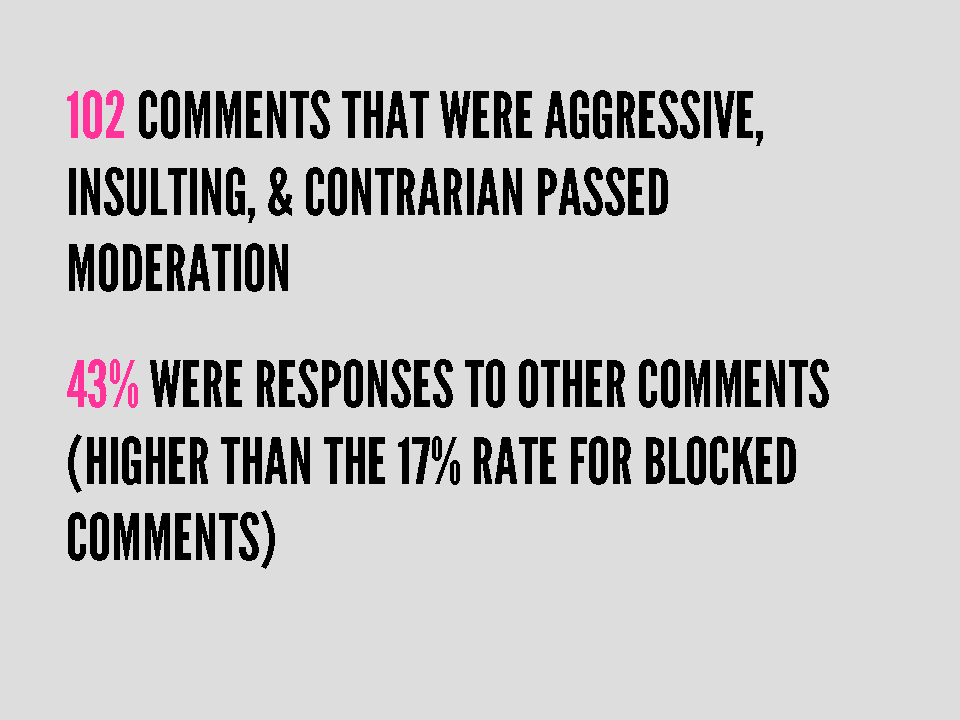
That said, there were 102 comments that were categorized like troll comments – but I let them though moderation. It’s more likely for those to be in response to other people. So, I guess I’m more okay with people trolling each other than trolling me, especially if they’ve already commented once before.
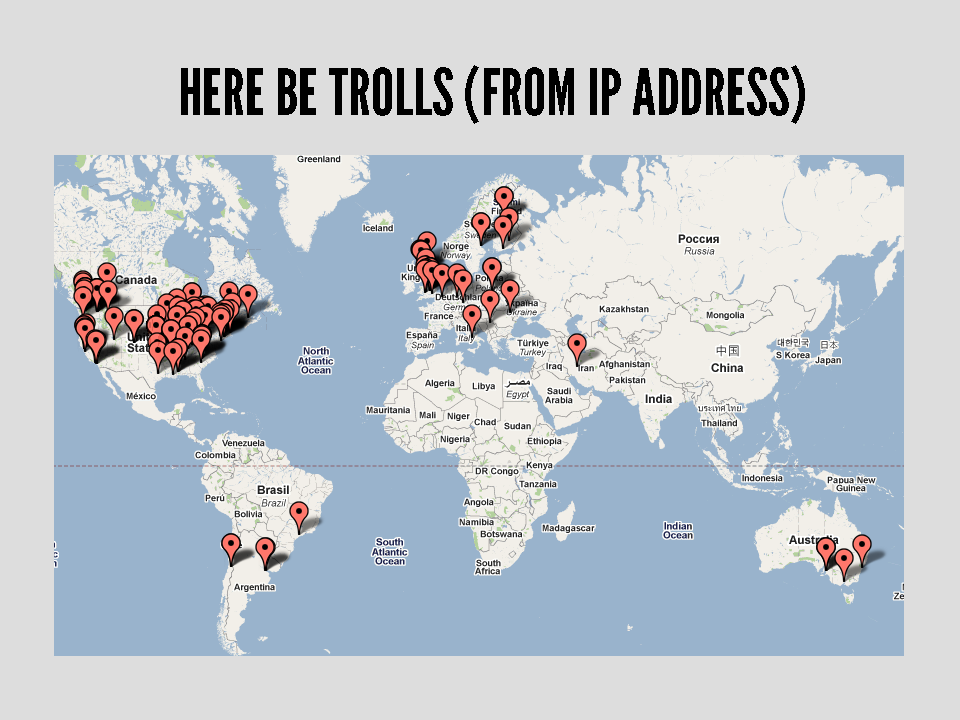
This is a map of all of the trolls that I got. These are the IP addresses for all the comments that didn’t make it through the moderation queue. Unsurprisingly the US and Europe were the highest locations of activity, given that it’s broadly a conversation about video games and feminism.
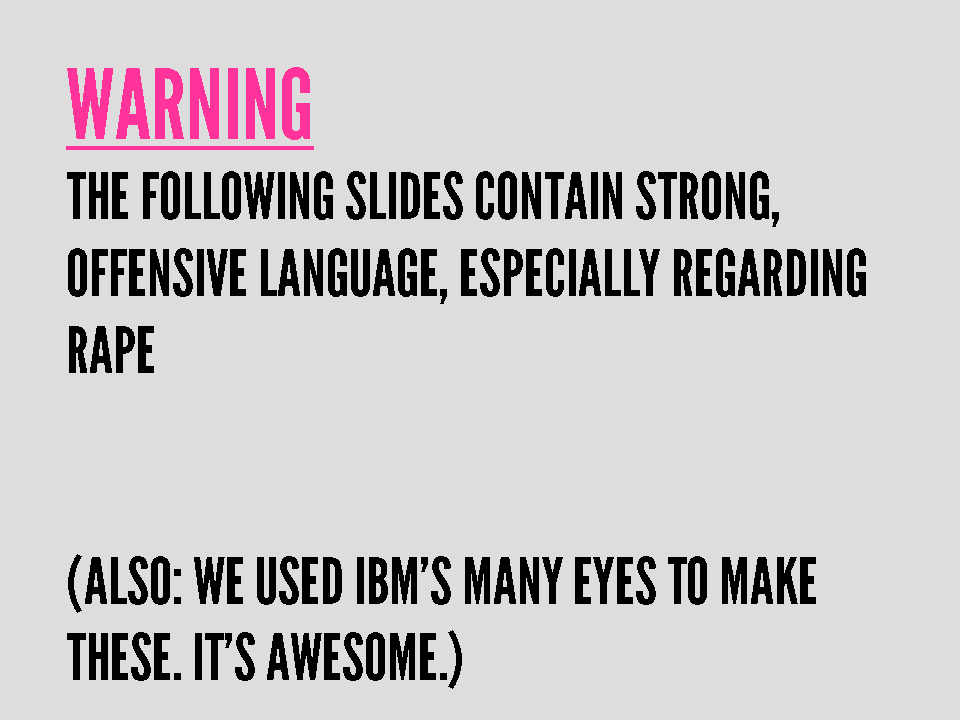
So, we did some word visualizations on how people are using words in discussion versus how the trolls are using those same words. There is quite a bit of strong language coming up, so brace yourselves or close your eyes. Also, these come from IBM’s Many Eyes.
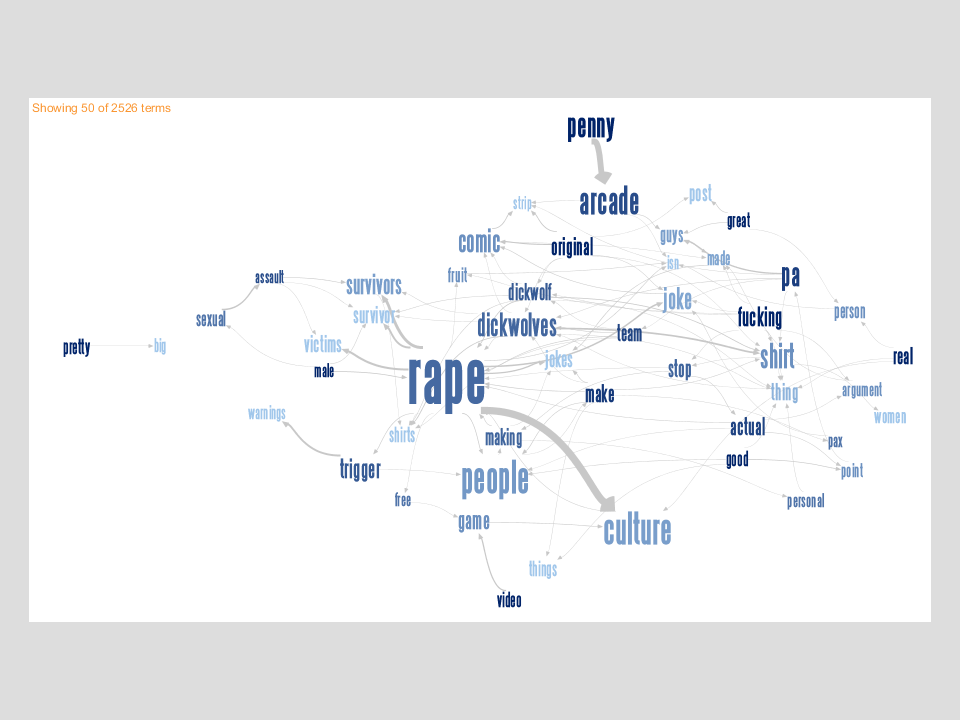
This is the conversation on my blog as of February 1st. Remember, two-thirds of this discussion isn’t even aimed at me. It’s the intersections between video games, rape survivors, and rape culture. While “rape” is used frequently, it isn’t exclusively showing up as a verb.
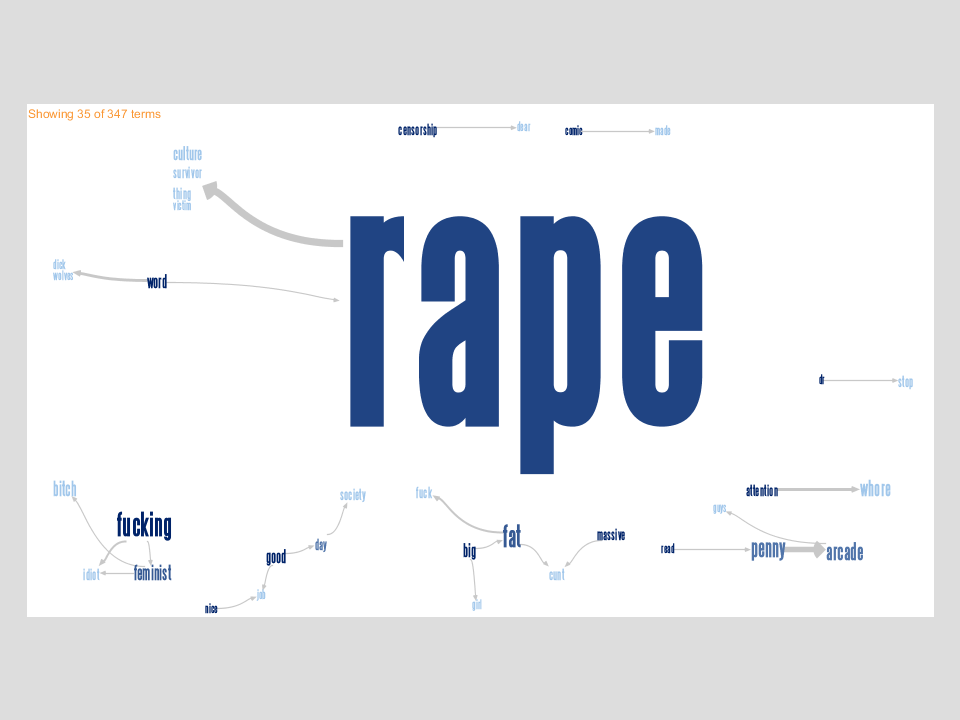
And yet when you look at the trolls, that is basically all they’re saying, and they’re saying it overwhelmingly to me. All they’re contributing to the discussion is insults and perceived insults, specifically around being raped and the word “fat”. I thought that was a little off-topic.
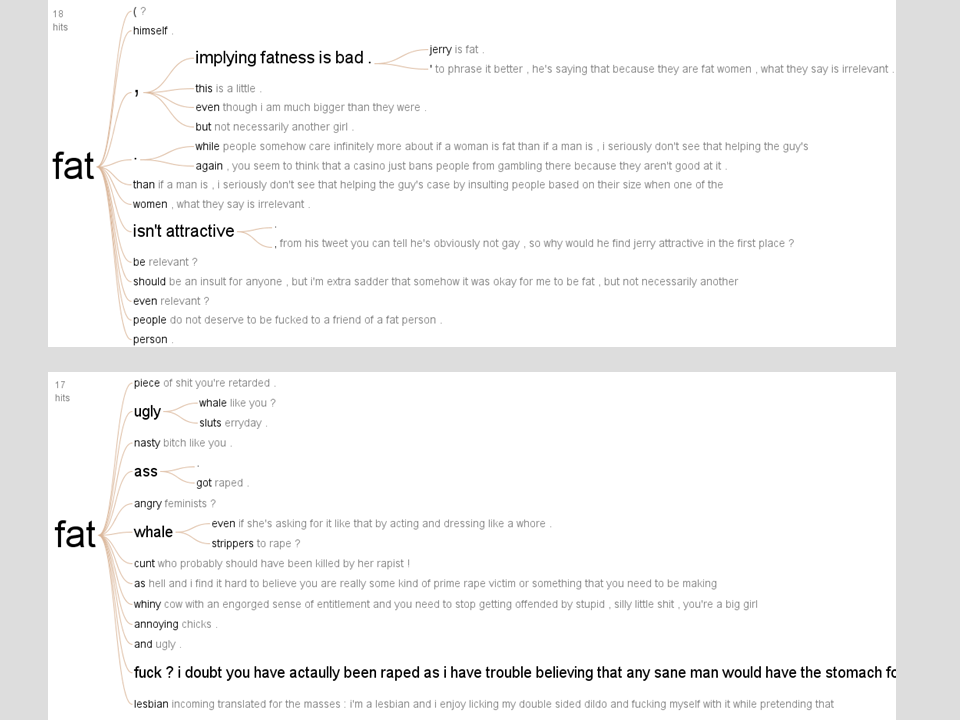
So, if you look at the word “fat” in comments, it does come up, but it has more concepts tied to it, whereas “fat” is wholly a derogatory term for a troll commenter. They’re very consistent about that, despite the fact that none of my posts address fat or body size.
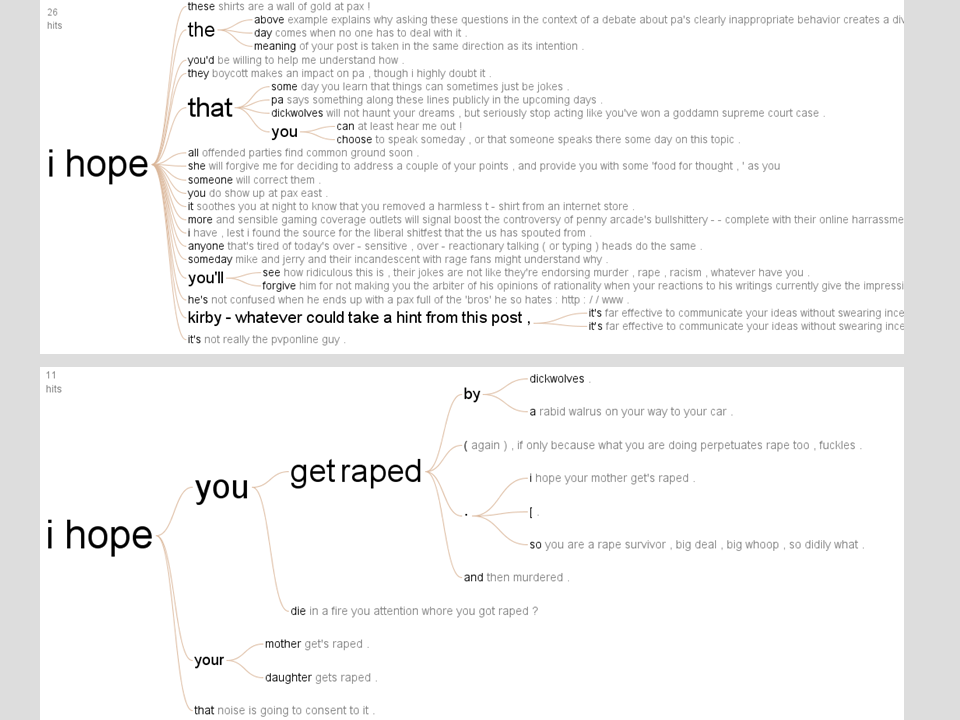
Expressive phrases also highlight how different actual discussion is. “I hope” in comments is the front of a sentence expressing normal human hopes. The trolls only have one hope and it’s like they’re reading from a script.
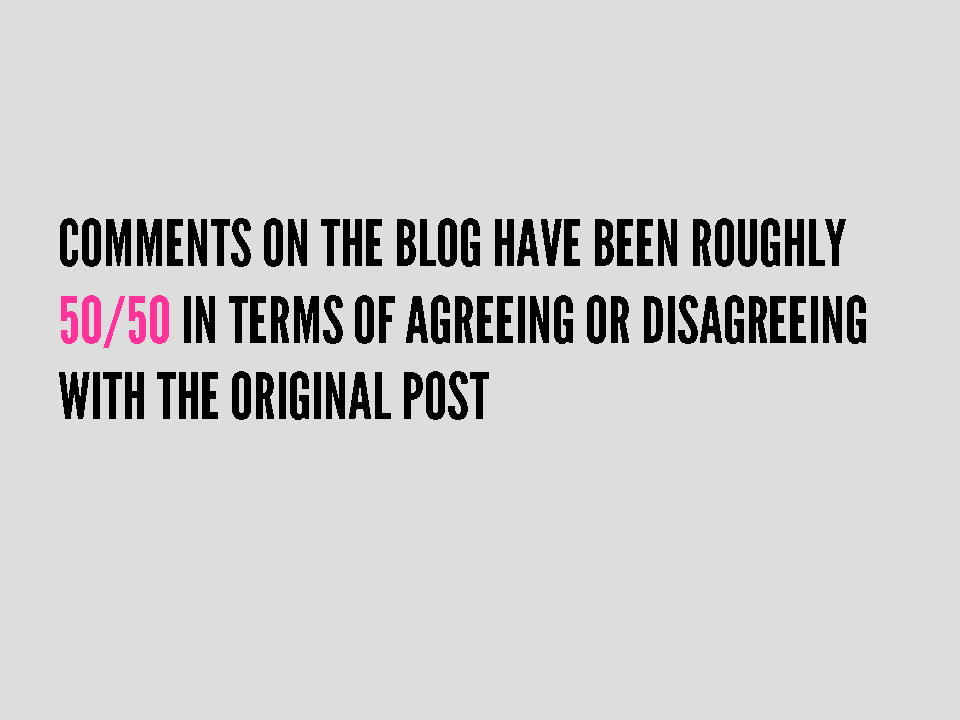
The comments have been about 50/50 whether or not people agree or disagree with me. So you can put a less than neutral idea out on the Internet and people will just show up to debate you. I don’t think it’s possible to avoid disagreement, and allowing it adds to your traffic and comments.
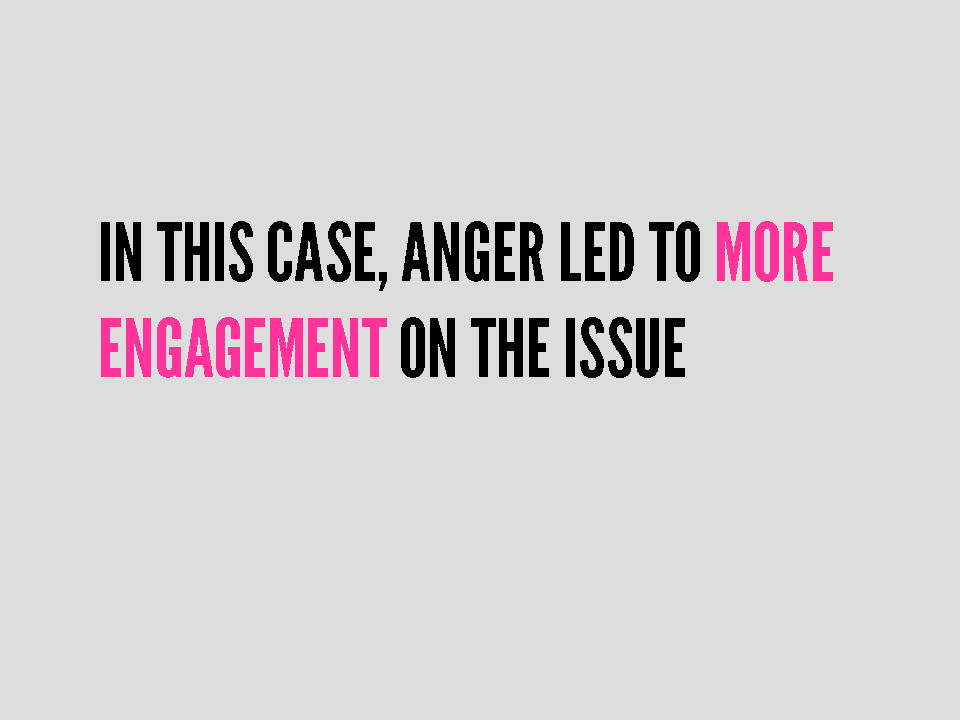
And so I have found that simultaneously allowing dissent while denying trolls an audience has led to more engagement. I’ve had multiple commenters say that they are not commenting anymore and in 24 hours they are back and generating more comments for people to respond to.
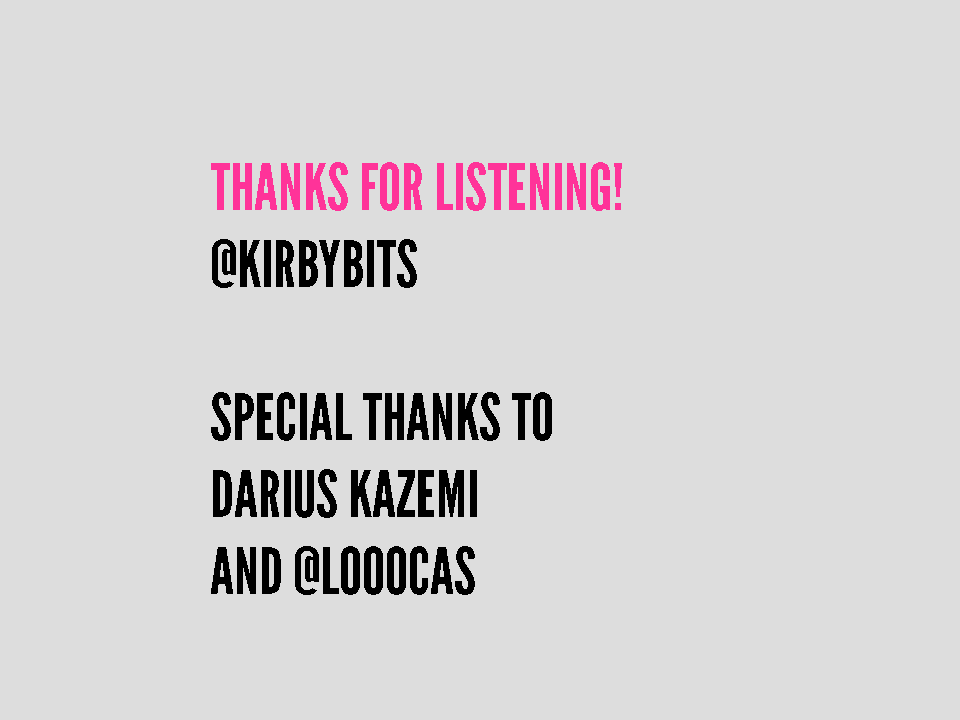
If you’re looking for more blog traffic, I’ve accidentally discovered that if you aren’t afraid of negative responses and just let people disagree with you and with each other, that will lead to more engagement and traffic than only approving “positive” comments. Thank you!
—–
I realize that’s a cock-eyed way of looking at everything, and it’s certainly a more cynical p0int of view about my blog’s traffic and comments than I have most of the time. I’ve spent a lot of time lately feeling numb, though, and when I pull back from all this and try to put things into a larger context, I do think there are some lessons in here for those who actually want 10,000 - 20,000 people reading their blog on a given day, regardless of subject matter.
Also, as I’ve said before in odd corners – I’m never going to think communication is the bad choice. Letting people “talk back” to you via comments is something I would like to encourage in both personal and business websites, even if what you’re hearing from a commenter is negative. That just creates situations you can respond to, which will hopefully improve the commenter’s opinion of you. At the very least, it will give you practice in honing your content/message so it says what you intend it to say.